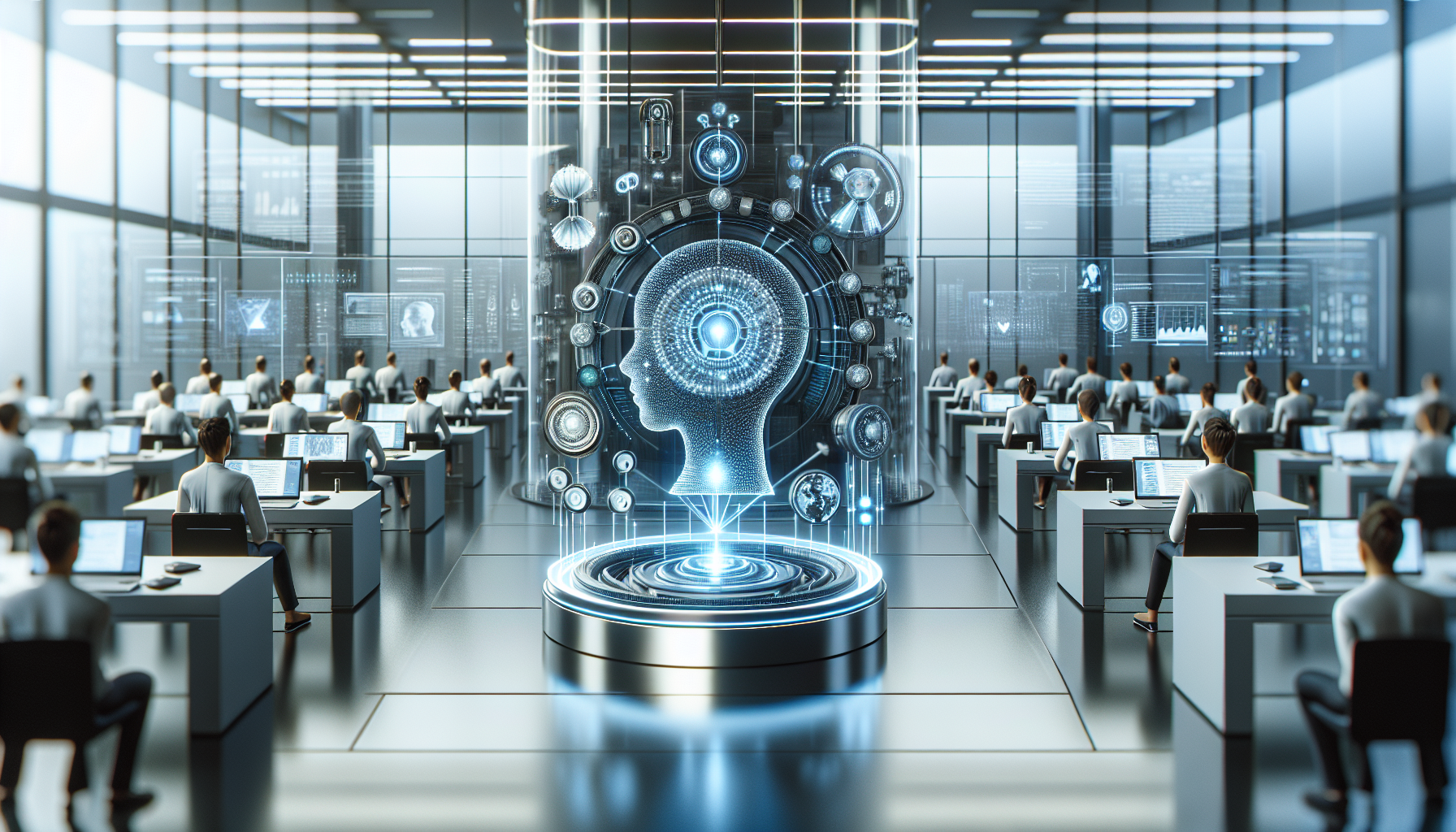
AI in Retail: Revolutionizing Customer Experience with Future Predictions
April 6, 2025
Artificial Intelligence is poised to redefine the retail experience, transcending traditional boundaries to deliver unparalleled levels of customer satisfaction and engagement. As retailers increasingly integrate AI technologies, they not only enhance operational efficiencies but also craft personalized shopping experiences that cater to the nuanced preferences of individual consumers. This transformation, driven by sophisticated algorithms and vast data analytics, promises a future where shopping is frictionless, intuitive, and deeply personalized.
Central to AI's potential in retail is its ability to understand and predict customer behavior. By analyzing vast amounts of data, AI systems can uncover patterns that elude human analysts. These insights enable retailers to anticipate customer needs, offering product recommendations that align with personal tastes and preferences. Imagine a scenario where a customer walks into a store, and through a seamless integration of AI-driven sensors and personal mobile devices, is immediately greeted with personalized product suggestions. This level of customization is not only convenient but also enhances customer satisfaction and loyalty.
Beyond personalization, AI's role in inventory management is reshaping how retailers approach supply chain logistics. Intelligent systems can predict demand fluctuations with remarkable accuracy, minimizing overstock and stockouts. This predictive capability ensures that customers find what they need, when they need it, enhancing the overall shopping experience. Moreover, AI-driven automation in inventory management reduces operational costs, allowing retailers to pass savings onto consumers and remain competitive in a crowded market.
The integration of AI in retail also extends to customer service, where virtual assistants and chatbots provide immediate support and guidance. These AI-driven interactions are not merely transactional; they are designed to understand context and sentiment, offering solutions that are empathetic and relevant. As natural language processing technologies advance, the distinction between human and AI interaction will blur, leading to seamless and satisfying customer service experiences.
Visual search is another area where AI is set to revolutionize retail. By leveraging computer vision technology, retailers can offer customers the ability to search for products using images rather than words. This innovation addresses a significant pain point in online shopping, where textual descriptions may fail to capture the essence of what a customer is seeking. Visual search capabilities empower consumers to find exactly what they are looking for with a simple photo, streamlining the shopping journey and reducing friction.
AI's impact on retail is not limited to enhancing customer experience; it also extends to ethical and sustainable practices. Intelligent systems can optimize energy consumption within stores, reducing carbon footprints and promoting sustainability. Additionally, AI can assist in supply chain transparency, enabling retailers to provide consumers with information about product origins and manufacturing processes. This transparency fosters trust and aligns with the growing consumer demand for ethical and environmentally responsible shopping options.
As AI technologies evolve, the concept of omnichannel retail will take on new dimensions. The seamless integration of online and offline experiences will become increasingly sophisticated, with AI serving as the bridge that connects disparate channels. Retailers will be able to offer consistent and engaging experiences across all platforms, ensuring that customers enjoy a cohesive journey regardless of how they choose to shop.
While the benefits of AI in retail are clear, the implementation of these technologies raises important considerations. Retailers must navigate challenges related to data privacy and security, ensuring that customer information is protected at all times. Moreover, the human element of retail should not be overlooked. As AI takes on more roles, finding the balance between automation and human interaction will be crucial. The future of retail will depend on how well businesses can integrate AI while preserving the personal touch that remains a hallmark of exceptional customer service.
In contemplating the future trajectory of AI in retail, one must consider the broader implications of these innovations. Will AI-driven personalization lead to a homogenization of consumer preferences, or will it enable a more diverse and inclusive retail landscape? How will retailers balance the need for efficiency with the desire to maintain genuine human connections? These questions underscore the transformative potential of AI in retail, inviting retailers and consumers alike to reflect on the future of shopping. As we stand on the cusp of this technological revolution, the possibilities are as limitless as the imagination.


